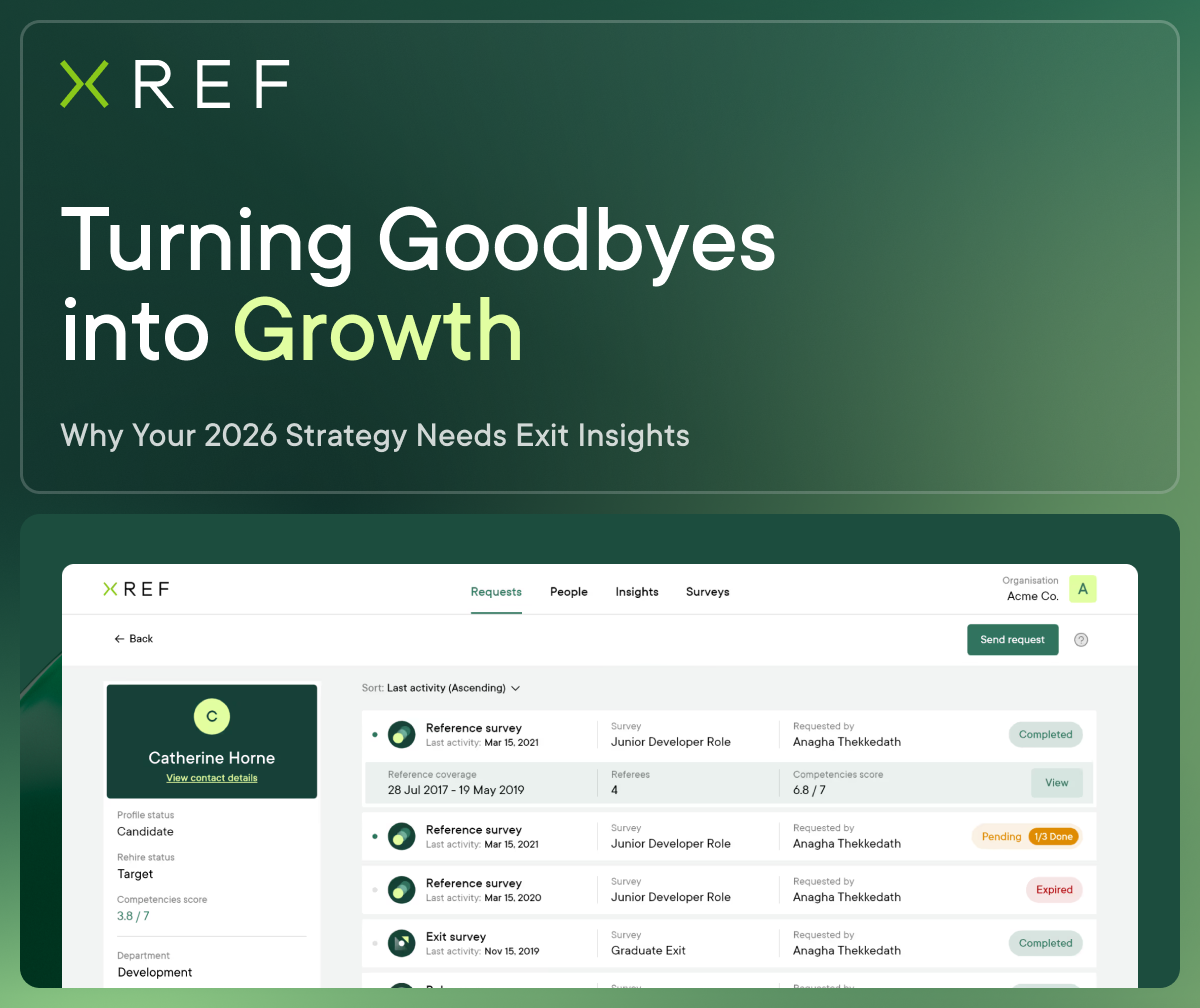


Give your people a voice with a tailored Xref Engage survey.
Increase retention and reduce turnover with quick employee feedback from an Xref Pulse Survey.
As technology continues to transform the workplace, it comes as no surprise that recruiters worldwide are opting for artificial intelligence (AI) to simplify their hiring. While there is a lot of debate in understanding the good, bad, and unknown aspects of AI in recruiting, we cannot deny that it’s one of the most promising technologies of recent times. Here we explore its impact on the hiring journey.
One of the biggest challenges for recruiters is identifying the right candidates from a large applicant pool. AI can efficiently and effectively filter applications and match candidates to the job; easing up the time constraints on recruiters so they can move quickly with filling positions.
AI can scale-up the candidate selection process in a way that is not possible if done manually. It can go through an extensive list of candidates and quickly pick the most relevant job role. AI can also help by conducting automated assessments that do not require manual supervision.
AI is, for some, now the cornerstone of recruiting. It eliminates manual screening of CVs, accelerates candidate matching and provides data for better decisions. Digital intelligence trains itself to understand human behaviour and draw out insights that might otherwise take teams hours to uncover.
AI is also a great way to remove bias from the hiring equation. When recruiters use AI to screen candidates, shortlisting becomes merit-based; this helps keep the focus on competency and experience for the role.
#1 Conversational AI
Conversational AI refers to technologies, like chatbots or voice assistants that communicate like humans by recognising and responding to text and speech. While conversational AI is still in its rudimentary stage, companies are increasingly seeing the value of this technology, especially those that hire for high volume roles. It can speed up the hiring when the candidate is looking for quick answers to common questions like location and compensation before applying to a role.
#2 Video Interviews
Advances in AI mean that it is now possible to conduct interviews online, asking candidates to record their responses to predefined questions. Responses are then submitted and rated by assessors of the hiring company.
Organisations such as Unilever, Google, and Facebook have gone a step further in using AI technology. Their teams use AI to assess video interviews through voice and facial expression analysis; this gives them a better understanding of the applicant’s personality traits.
#3 Data-Driven Insights
One of the most well-known AI applications is the recommendations it is capable of giving. With data analytical tools, recruiters can eliminate guesswork and land the right hires quicker and with more certainty. Xref, for example, uses AI to gather reference insights on candidates and benchmark them against others who have been referenced for the same role.
AI has enormous potential for recruiting, not to cut jobs, but to speed up hiring and eliminate manual tasks. For many, there is still a lot to be learned about the technology and the benefits it can offer. But when used as an assistive tool, AI will help recruiters spend more time on people-related tasks, such as enhancing the employee experience, reducing employee attrition and improving the candidate onboarding experience. The data gathered from AI will also help in making better and more strategic workforce decisions.
AI has had a significant impact across many industries and domains; recruitment is no exception. The increasing need to automate recruitment processes, hire candidates ahead of competitors, and use data for strategic hiring and management decisions are the major driving factors for using AI in recruitment.
